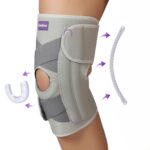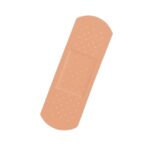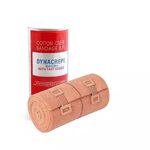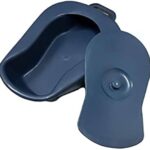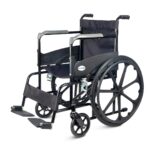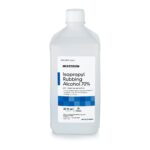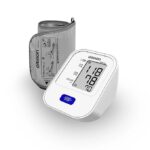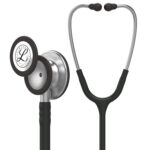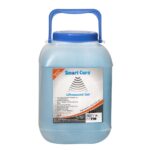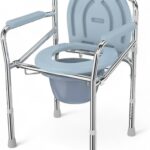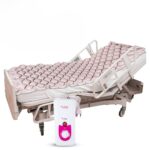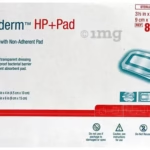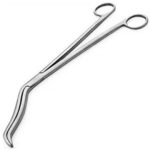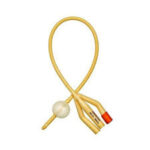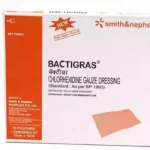Post-Operative Care: How to Ensure Fast & Safe Recovery After Surgery

Undergoing surgery is a significant milestone in one’s medical journey, but it’s only half the battle. The other crucial part is the recovery process, which can sometimes feel even more daunting. Proper post-operative care is essential not just for healing, but for ensuring a speedy and safe recovery. Whether it’s a minor procedure or a major surgery, the steps you take after the operation can have a profound impact on how well and how quickly you heal.
In this blog, we’ll walk you through key post-operative care tips and strategies to help you recover in the best possible way.
1. Follow Your Doctor’s Instructions Carefully
Your surgeon and healthcare team are the best resources for ensuring a smooth recovery. They’ll give you a set of specific guidelines tailored to your surgery. These instructions may include:
- How to manage pain and swelling
- Medications you should take (and when)
- Wound care and dressing changes
- Activity restrictions (when to rest, when to start moving again)
- Signs of complications to watch out for
It’s essential to follow these instructions to the letter. If anything is unclear or you have concerns, don’t hesitate to reach out to your healthcare provider.
2. Rest, But Don’t Stay Completely Still
While rest is crucial for healing, it doesn’t mean you should stay in bed all day. In fact, getting up and moving around in small, controlled ways is an important part of recovery. It helps:
- Improve circulation
- Prevent blood clots (especially after major surgeries)
- Promote healing by encouraging the body to move nutrients and oxygen to the injured area
Ask your doctor or physiotherapist about specific movements or light exercises you can do. Overdoing it too soon can cause setbacks, but avoiding movement altogether can lead to complications.
3. Manage Pain Wisely
Pain is a natural part of the recovery process, but there are effective ways to manage it. Post-operative pain management typically involves a combination of prescription medications, over-the-counter drugs, and natural remedies.
- Prescription Medications: These are usually given for the first few days after surgery, especially for moderate to severe pain. Make sure to take them as directed and never exceed the recommended dose.
- Over-the-Counter Pain Relief: Once you’re ready to transition to less potent medications, your doctor might suggest over-the-counter pain relievers such as ibuprofen or acetaminophen.
- Natural Remedies: Applying ice packs to the surgery area, elevating the affected limb, or using heating pads (as recommended by your doctor) can also help alleviate discomfort.
- Pain Journals: Keeping track of your pain levels and the effectiveness of different remedies can help your healthcare team adjust your treatment plan if needed.
4. Keep the Surgical Site Clean and Protected
Whether you had a small incision or a large one, keeping the surgical site clean is one of the most important aspects of post-operative care. This reduces the risk of infection and promotes faster healing. Here’s how to do it safely:
- Follow Dressing Instructions: Your doctor will give you specific guidance on when and how to change your bandages. Always wash your hands thoroughly before touching the area.
- Avoid Scratching or Picking: As your wound heals, it may itch or form a scab. Do not scratch or pick at it, as this can introduce bacteria and cause infection.
- Watch for Signs of Infection: If you notice redness, warmth, swelling, or discharge coming from the wound, it could be a sign of infection. Contact your doctor immediately.
- Sun Protection: If your surgical site is exposed to the sun, be sure to protect it from direct sunlight. The skin is especially vulnerable during the healing process and UV exposure can cause permanent scarring.
5. Eat a Balanced Diet for Faster Healing
Proper nutrition plays a crucial role in your recovery. Your body needs the right nutrients to repair tissues, fight off infections, and regain strength. Here are some dietary tips for post-operative recovery:
- Protein: Essential for tissue repair and immune function. Include lean meats, poultry, fish, eggs, tofu, or beans in your meals.
- Vitamin C: Vital for collagen production and wound healing. Citrus fruits, strawberries, bell peppers, and tomatoes are excellent sources.
- Vitamin A: Important for immune function and skin health. You can get vitamin A from carrots, spinach, and sweet potatoes.
- Hydration: Staying hydrated helps your body transport nutrients and oxygen more efficiently. Drink plenty of water throughout the day.
- Fiber: Surgery can sometimes slow down your digestive system. To avoid constipation (especially if you’re on painkillers), eat foods rich in fiber such as fruits, vegetables, and whole grains.
6. Get Enough Sleep and Rest
Your body heals the most while you’re resting. Quality sleep helps to repair tissues, boosts your immune system, and restores energy. Here are some tips for getting better sleep during recovery:
- Create a Comfortable Sleep Environment: Ensure that your bed is supportive, and consider using pillows to elevate certain body parts if you’re recovering from a procedure on the legs, back, or abdomen.
- Establish a Sleep Routine: Try to go to bed and wake up at the same time every day to help regulate your sleep patterns.
- Limit Distractions: Avoid screens (phones, computers, etc.) at least an hour before bedtime, as the blue light can interfere with sleep quality.
7. Be Aware of Warning Signs
While most post-operative recovery experiences go smoothly, complications can sometimes arise. Be alert to the following warning signs and seek medical help immediately if you experience any of them:
- Severe pain that doesn’t improve with medication
- Fever over 101°F (38.3°C)
- Excessive swelling or bruising around the surgery site
- Nausea or vomiting that persists for more than 24 hours
- Shortness of breath or chest pain
- Unusual discharge from the wound (green, yellow, or foul-smelling)
8. Gradually Resume Normal Activities
Once your doctor clears you for it, start to slowly integrate normal activities back into your routine. Begin with light walking or stretching, and gradually increase the intensity of physical activities. Pushing yourself too hard, too fast, can increase your risk of re-injury.
Conclusion
Post-operative care is a vital component of the recovery process, and it can make a big difference in how quickly and safely you heal. By following medical advice, managing pain effectively, maintaining a healthy diet, and listening to your body, you can ensure a faster recovery with fewer complications. Always stay in communication with your healthcare team and reach out if you have any questions or concerns along the way.

 My Account
My Account
